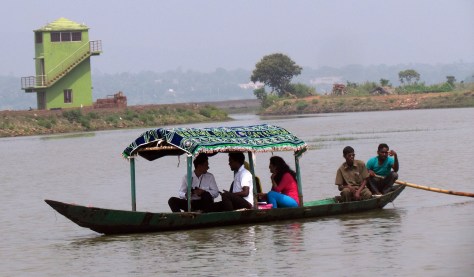
Mangalajodi Ecotourism Trust of Manglajodi in Khurda district in Odisha has been nominated for United Nations World Tourism Award to be given early next year. It is only nominee from India in this year’s UNWTO awards. The World Tourism Organization (UNWTO) announces the winners of the UNWTO Ulysses Prize and the UNWTO Ethics Award, as well as 14 finalists for the upcoming 14th Edition of the UNWTO Awards for Innovation in Tourism. The Awards Ceremony will be held next January 2018 in Madrid on the occasion of the International Tourism Fair, FITUR.

The UNWTO Awards recognize inspirational individuals and projects for their innovative achievement as well as their invaluable dedication to developing and advocating sustainable tourism in line with the UNWTO Global Code of Ethics for Tourism and the Sustainable Development Goals (SDGs). The 14th Edition of the UNWTO Awards will take place in January 2018, co-hosted by FITUR, the International Tourism Fair in Spain/IFEMA in Madrid, Spain. The Awards Ceremony will be preceded by the UNWTO Awards Forum where finalists will present their respective projects. Fourteen innovative projects among 128 applicants from 55 countries have been selected as finalists of the 14th UNWTO Awards for Innovation in Tourism.

In the Innovation in Enterprises category Conservation and Livelihoods: Community managed Ecotourism at Mangalajodi, Mangalajodi Ecotourism Trust has been shortlisted. Other nominated enterprises in this category are from Kenya, Italy and Philippines. Mangalajodi is one of the oldest village coming under Tangi block of Khurda district in Odisha, 75 km from Bhubaneswar towards Berhampur with a huge marshland along the northern edge of Chilika Lake. The area (about 10 sq.km) is primarily a fresh water zone connected by channels cut through the reed beds with the brakish water of Chilika lagoon. The numerous channels that crisscross through the greenery, harbour thousands of water birds, migratory and resident. Part of Chilika, 1165 sq.kms.brakish water estuarine lagoon of international importance. The wetland hosts more than 3,00,000 of birds in the peak season. October to March is the best time to visit this place. This region has is a significant global waterfowl habitat and is declared as an “Important Bird Area (IBA)”.

Manglajodi Ecotourism is community owned and managed wildlife conservation venture. AT the heart is the democratic notion that the fragile ecosystems like this belong to everyone. Protection and conservation of Manglajodi wetland is important to us. Mangalajodi epitomizes a sustainable lifestyle that is at brink of extinction. Mangalajodi village consists mainly of fishermen communities, who go fishing every evening to Chilika Lake and come back the next morning with fresh catch.

Local communities still dwell on the indigenous methods of catching fish wherein country made fishing nets are made out of bamboo which do not pose a threat to aquatic life. Fish is an important part of their diet and can be cooked in many forms i.e. cooked; smoked or even sun dried – commonly called “Sukhua”. Dried fish is the staple food and eaten with fermented rice – another peculiarity of Odia Cuisine called “Pokhal Bhat.” Women are involved in collection of fuel wood which is actually dried leaves i.e. they don’t cut a tree for fuel wood – rather utilizes dried leaves.


1 Comments